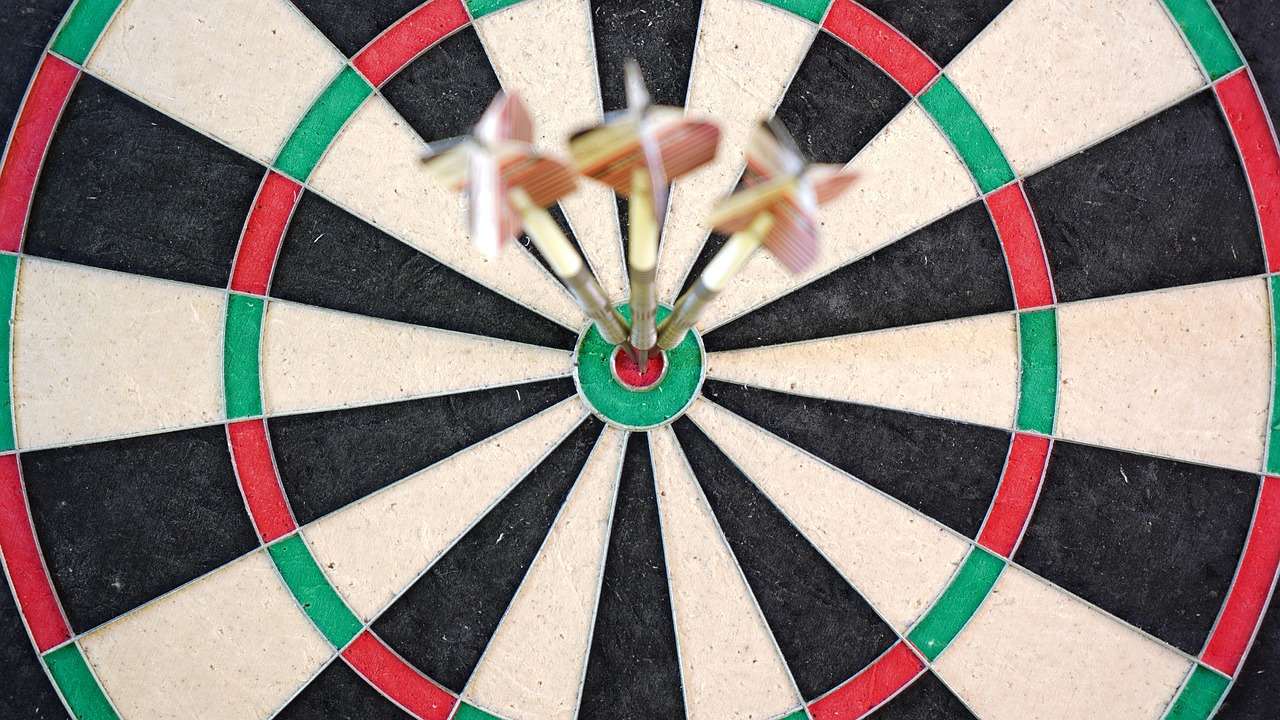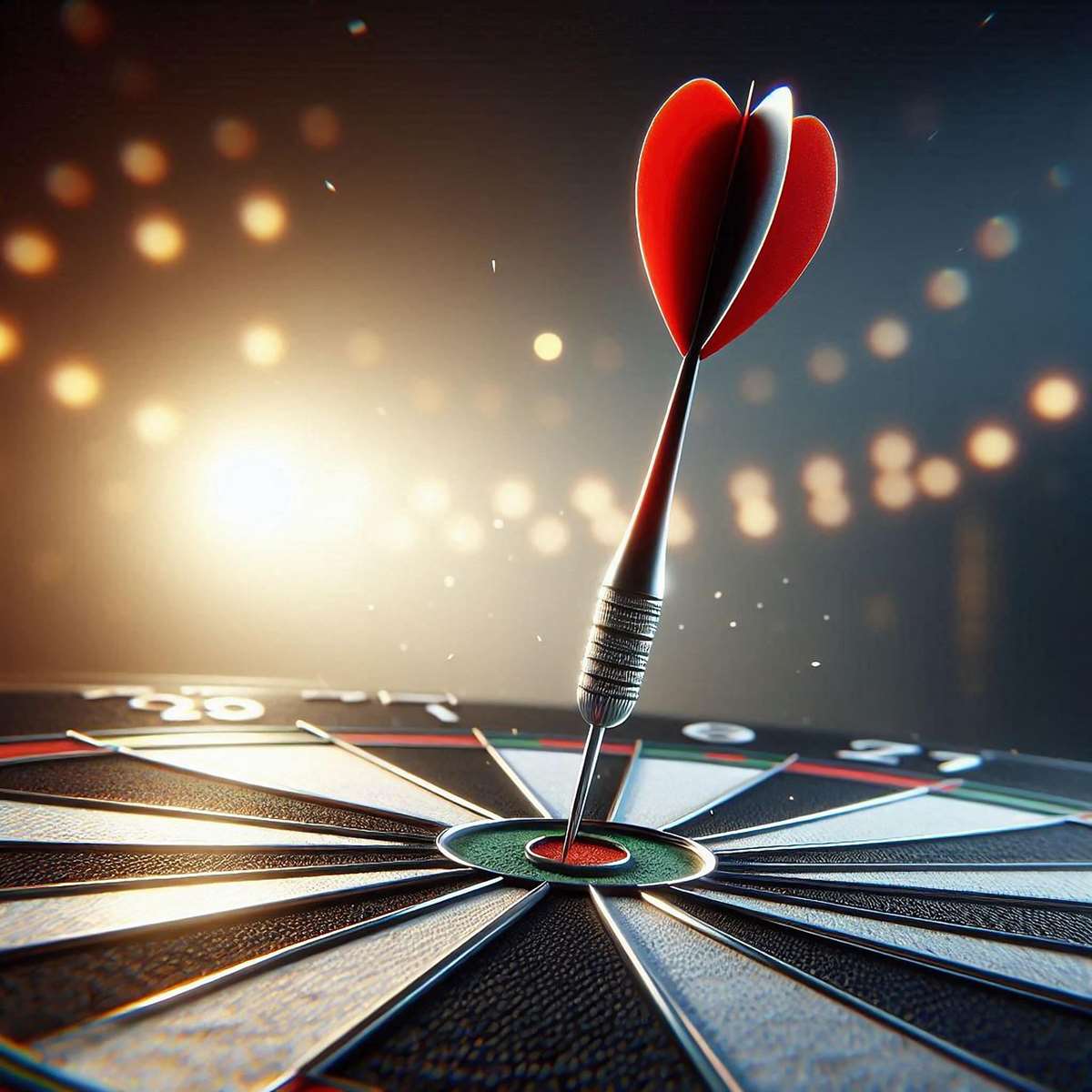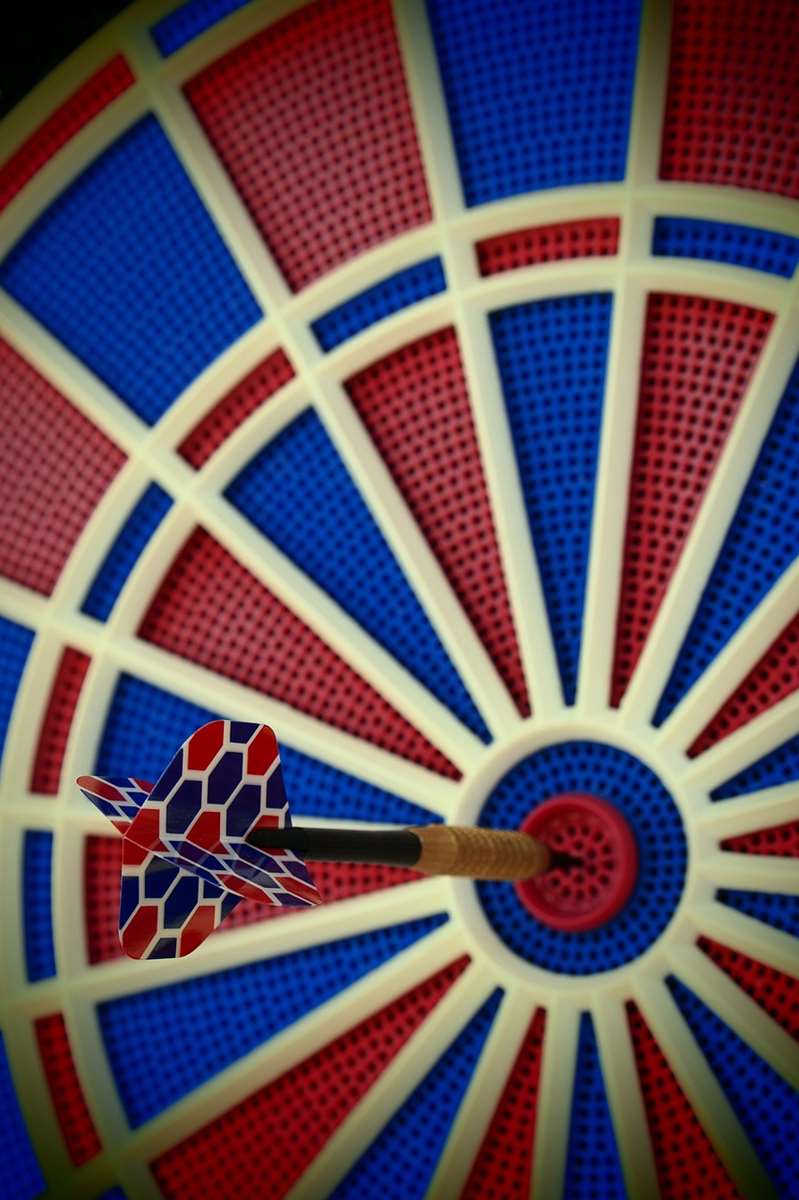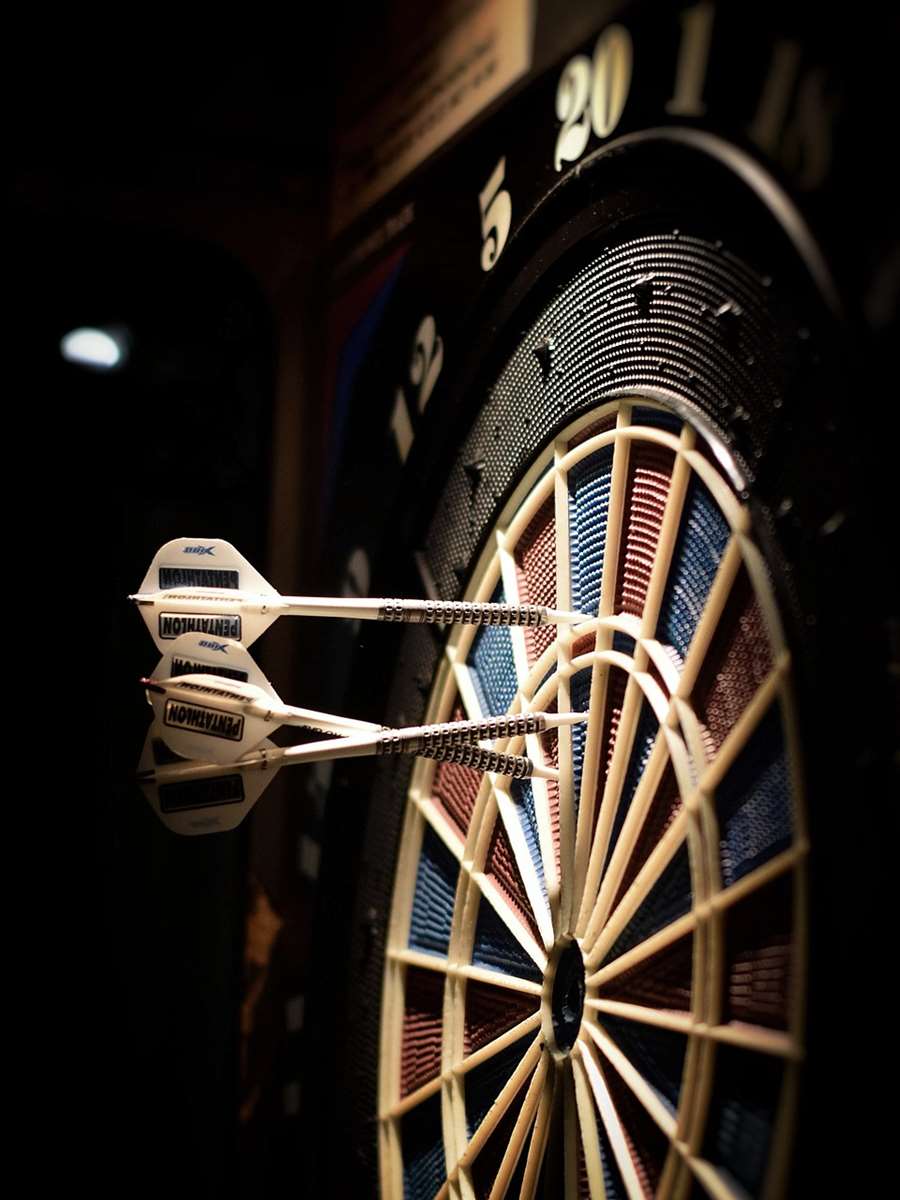Want to run a successful pub darts tournament? This Pub Darts Tournament Guide provides a step-by-step plan to organize, promote, and execute a fun and competitive event for your local dart players. We’ll cover everything from setting up the tournament structure to managing the scoring and prizes, ensuring a memorable experience for all participants.
⚠️ Still Using Pen & Paper (or a Chalkboard)?! ⚠️
Step into the future! The Dart Counter App handles all the scoring, suggests checkouts, and tracks your stats automatically. It's easier than you think!
Try the Smart Dart Counter App FREE!Ready for an upgrade? Click above!
Planning Your Pub Darts Tournament Guide
The success of your pub darts tournament hinges on careful planning. Before you even think about chalking up the board, consider these crucial elements:
- Define the Tournament Type: Will it be a singles, doubles, or team tournament? A knockout format or a round-robin? The format dictates the schedule and scoring system.
- Set a Date and Time: Choose a date and time that maximizes participation. Consider weeknights or weekends, avoiding major holidays or conflicting events.
- Establish Entry Fees and Prize Pool: Determine an appropriate entry fee that covers costs and contributes to the prize pool. A well-defined prize structure incentivizes players and adds to the excitement.
- Secure Necessary Permits and Licenses: Check with your local authorities regarding any permits or licenses required for running a tournament with entry fees and prizes.
Thinking about the tournament schedule in advance will help the day run smoothly. Preparing your dartboard will also save time as the tournament runs.

Choosing the Right Tournament Format
The format of your pub darts tournament significantly impacts player engagement and the overall competitive spirit. Here are a few popular options:
- Knockout (Single Elimination): Simple and straightforward, where the loser of each match is eliminated. It’s quick but can be unforgiving for early mistakes.
- Double Elimination: Provides a second chance for players who lose their first match. This format is fairer and often preferred for larger tournaments.
- Round Robin: Each player or team plays every other player or team. This ensures everyone gets plenty of game time but can be time-consuming for large groups.
- Group Stage followed by Knockout: Combines the benefits of both formats, providing more game time in the group stage and then intense competition in the knockout rounds.
Consider the number of participants and the available time when selecting the most appropriate format. A shorter tournament time commitment may result in greater initial interest. You can also look at Darts Culture And Community Guide to prepare for the event.
Promoting Your Pub Darts Tournament
A well-planned tournament needs participants! Effective promotion is key to attracting players and creating buzz around your event. Here are some strategies to consider:
- Leverage Social Media: Create a Facebook event, post on Instagram, and use relevant hashtags to reach a wider audience. Share updates, photos, and player profiles to keep people engaged.
- Utilize Local Advertising: Place posters in the pub and surrounding areas. Consider advertising in local newspapers or community newsletters.
- Word-of-Mouth Marketing: Encourage existing dart players to spread the word to their friends and colleagues. Offer incentives for referrals.
- Partner with Local Darts Clubs: Reach out to local darts clubs and leagues to promote your tournament to their members.
Be sure to clearly communicate all the important details, including the date, time, location, entry fee, prize pool, and tournament format. Highlighting any unique aspects of your tournament, such as special prizes or entertainment, can also help attract more players. Getting Getting Tickets For Darts Events for other events might give them the idea to participate in the event you are planning.

Setting Up the Tournament Structure
A clear and organized structure is essential for a smooth and fair pub darts tournament. Here’s how to set up the tournament logistics:
- Create a Tournament Bracket: Prepare the bracket in advance, whether using a physical chart or digital software. Ensure it’s easily accessible and understandable for all players.
- Establish Clear Rules: Define the rules of the game, including the starting score (e.g., 501), double-out requirements, and any specific rules for your tournament. Communicate these rules clearly to all participants before the tournament begins.
- Designate a Tournament Official: Appoint a neutral person to oversee the tournament, resolve disputes, and ensure fair play. This individual should be knowledgeable about the rules and able to make impartial decisions.
- Organize the Playing Area: Ensure the dartboards are properly mounted and well-lit. Provide adequate space for players to throw and for spectators to watch safely.
Managing Scoring and Record Keeping
Accurate scoring and record-keeping are crucial for maintaining the integrity of the tournament. Here are some tips for effective scoring:
- Use a Standard Scoring System: Employ a clear and consistent scoring system, whether using manual scoreboards or electronic dartboards.
- Assign Scorekeepers: Designate reliable scorekeepers for each match to ensure accurate recording of scores.
- Verify Scores Regularly: Encourage players and scorekeepers to verify scores after each leg or match to minimize errors.
- Maintain a Tournament Record: Keep a record of all match results, including scores, winners, and losers. This information can be used to track player performance and for future tournaments.
Having score sheets prepared can speed up the recording keeping part of the tournament. You can also look into what to Expect At Live Darts to better understand the playing environment.

On the Day of the Tournament
The day of the tournament is where all your planning comes to fruition. Here’s how to ensure everything runs smoothly:
- Registration and Check-In: Set up a registration area where players can check in, pay their entry fees, and receive their tournament information.
- Briefing and Announcements: Start the tournament with a briefing to review the rules, schedule, and any important announcements.
- Match Management: Manage the flow of matches, ensuring that players are ready to play when their turn comes up. Keep the tournament moving at a good pace to avoid delays.
- Provide Refreshments: Offer refreshments, such as drinks and snacks, for players and spectators. This can help create a more enjoyable atmosphere.
A well-organized tournament is a fun tournament. Don’t forget about these steps to make the day great!

Ensuring Fair Play and Resolving Disputes
Maintaining fair play and resolving disputes effectively are essential for a successful and enjoyable pub darts tournament. Here’s how to handle these situations:
- Enforce the Rules Consistently: Apply the rules consistently and impartially to all players. Avoid making exceptions or showing favoritism.
- Address Disputes Promptly: Resolve any disputes quickly and fairly, following the established rules and procedures.
- Listen to Both Sides: Before making a decision, listen carefully to both sides of the dispute and gather all the relevant information.
- Make Impartial Decisions: Base your decisions on the evidence and the rules, not on personal feelings or biases.
Having a neutral tournament official can help you keep things moving and fair to all players.
Prizes and Awards Ceremony
The prizes and awards ceremony are the culmination of the tournament and a great way to recognize the achievements of the players. Consider these tips:
- Offer Attractive Prizes: Provide prizes that are appealing to dart players, such as cash, trophies, dart equipment, or gift certificates.
- Recognize Multiple Winners: Award prizes not only to the overall winner but also to runners-up, highest checkout, and other achievements.
- Make the Ceremony Special: Create a memorable awards ceremony with music, speeches, and photo opportunities.
- Thank the Participants and Sponsors: Express your gratitude to all the participants, sponsors, and volunteers who helped make the tournament a success.

Post-Tournament Wrap-Up and Feedback
After the tournament, take the time to wrap things up and gather feedback to improve future events. Here’s what to do:
- Analyze Tournament Results: Review the tournament results to identify areas for improvement, such as the format, rules, or promotion.
- Gather Player Feedback: Solicit feedback from players on their experience at the tournament. This can be done through surveys, online forms, or informal conversations.
- Evaluate Financial Performance: Assess the financial performance of the tournament, including revenue, expenses, and profit.
- Plan for Future Tournaments: Use the insights gained from the previous tournament to plan for future events, making improvements based on feedback and analysis.
Getting feedback from players can help you improve your event, and plan for future darts competitions.
Long-Term Growth and Sustainability of Your Pub Darts Tournament
Building a successful pub darts tournament isn’t just about one event; it’s about creating a sustainable and growing community around darts. Consider these long-term strategies:
- Create a Regular Tournament Schedule: Establish a consistent schedule for your tournaments, such as monthly or quarterly events. This helps build anticipation and encourages regular participation.
- Develop a Darts League: Consider starting a darts league at your pub to provide ongoing competitive opportunities for players. This can help build a loyal following and generate consistent revenue.
- Partner with Local Businesses: Collaborate with local businesses to secure sponsorships and promote your tournaments. This can help increase your reach and access additional resources.
- Invest in Dartboard Maintenance and Upgrades: Regularly maintain your dartboards and consider upgrading to electronic dartboards to enhance the playing experience.
Conclusion
Running a successful pub darts tournament requires careful planning, effective promotion, and a commitment to fair play. By following this Pub Darts Tournament Guide, you can create a fun and competitive event that attracts players, boosts your pub’s profile, and builds a thriving darts community. Remember to prioritize clear communication, organized logistics, and a positive atmosphere. So, grab your darts, chalk up the board, and get ready to host an unforgettable darts tournament! We hope this has been a helpful resource to enhance your knowledge of Atmosphere At Live Darts Matches! Ready to start planning?
Hi, I’m Dieter, and I created Dartcounter (Dartcounterapp.com). My motivation wasn’t being a darts expert – quite the opposite! When I first started playing, I loved the game but found keeping accurate scores and tracking stats difficult and distracting.
I figured I couldn’t be the only one struggling with this. So, I decided to build a solution: an easy-to-use application that everyone, no matter their experience level, could use to manage scoring effortlessly.
My goal for Dartcounter was simple: let the app handle the numbers – the scoring, the averages, the stats, even checkout suggestions – so players could focus purely on their throw and enjoying the game. It began as a way to solve my own beginner’s problem, and I’m thrilled it has grown into a helpful tool for the wider darts community.